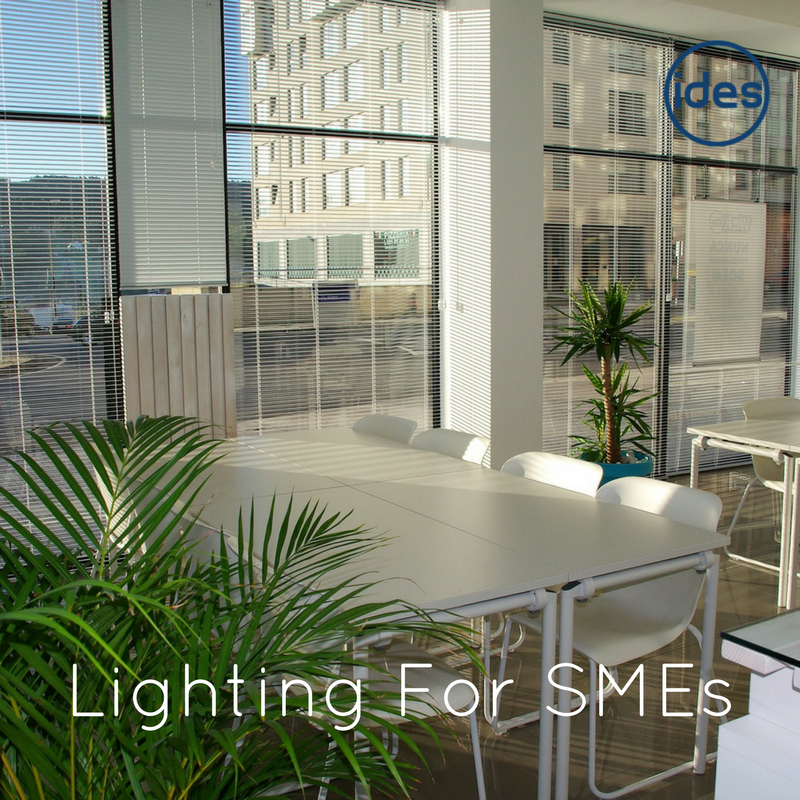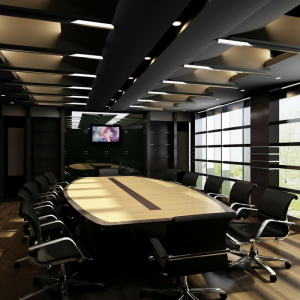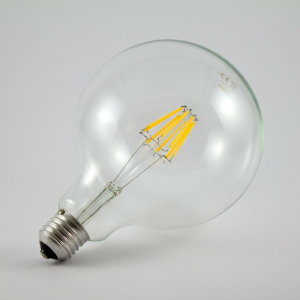- BY Elicia McManus
- POSTED IN Blog
- WITH 0 COMMENTS
- PERMALINK
- STANDARD POST TYPE

Good lighting should be an inherent workplace benefit: it is essential for people’s well-being, both physical and psychological. There is research that shows how the presence of natural light improves the health and productivity of employees.
Lighting needs to be an essential part of any office design, because if you neglect it, then no matter how much essential, state-of-the-art software, hardware and furniture you’ve got, you’re overlooking one of the basic cornerstones of the contemporary office.
At IDES UK, we specialise in office and commercial lighting, and we understand the vital role it plays as part of an integrated, natural solution to office design. We work to ensure that working spaces are fitted with the right level of lighting to improve and maintain conditions for everyone there; complementing the overall, ergonomic layout and dynamic use of space.
What We Learn from Natural Light
Natural light has huge benefits for everyone, including school pupils. This is another aspect that has been proven to improve test results; in fact, a study showed that pupils who were in high levels of natural light achieved 18% higher test results than those in minimal natural light. In fact, office furniture specialists at Calibre Furniture have also noticed an improvement in staff productivity too when there is more natural light present around them. This proves that natural light helps significantly in a variety of settings ranging from schools to offices.
If you’re stuck in a windowless room, where you feel increasingly closed in as time passes, it can only be bad for your health.
This is universal – there is a close relationship between daylight exposure in the workplace and the quality, and amount, of sleep office workers get.
A study from researchers at Chicago’s Northwestern University makes this conclusion. People with windows in the workplace received a significant 173% more white light exposure than those working in environments with no windows.
They also slept an average of 46 minutes more each night, as well as scoring better on issues concerned with quality of life, such as physical difficulties and overall vitality.
Why Circadian Rhythms are Vital
The biological, behavioural and mental changes people experience during the course of a 24 hour cycle are known as circadian rhythms.
Almost every living thing has them, and while the body produces them, it is the external environment that affects them.
Humans have devised numerous ways of disrupting their natural circadian rhythms, not least exposure to artificial light. Light is the main thing that cues changes in an organism’s internal clock, dictating cycles of sleep and wakefulness, and functions such as body temperature.
The body has a kind of master clock that controls circadian rhythms, made up of a group of some 20,000 nerve cells in the brain known as the suprachiastic nucleus, or SCN for short.
The SCN is vulnerable to the effects of external conditions, and if it’s destroyed, there can be a complete absence of a sleep-wake cycle, leading to chronic sleep disorders.
Abnormal circadian rhythms are associated with sleep disorders, and conditions such as obesity, diabetes and depression.
In other words, light is a health issue.
Engineering Natural Light
Office lighting for SMEs should be a strategy: it requires a thought-out lighting solutions to maximise natural light in the workplace.
This means configuring your office lighting and utilising natural light wherever possible by using windows and skylights.
It’s also a case of switching lights on as well as off – some workplace areas require less light than others, so they don’t require constant, bright fluorescent lighting.
If there are areas with sufficient natural light, don’t use artificial light alongside it. You can also install light sensors so in lit areas, the lights aren’t on if they’re not needed.
This has the dual benefit of creating a more, natural, organic feel for how your workspace is lit; and offers significant energy savings involving electricity, money and your carbon footprint.
Think of how to get staff to buy-in to the concept: communicate the long-term health benefits of natural light in the office, and encourage them to switch off lights when they’re not using them.
How Light Helps People at Work
Improving conditions in the workplace brings tangible results. A healthier workforce is far more likely to be a productive one.
It’s been reported that good lighting in the workplace increases efficiency and decreases mistakes, alongside keeping people healthier and more motivated.
It helps reduce eye strain and headaches, and improved visibility in key areas can help prevent accidents occurring.
While better visibility can enhance production and improve accuracy, a superior use of light, and using the right kind of light, can have marked improvement on staff morale.
Integrating Lighting and Office Design
Lighting isn’t the one solution to good office design, it should be part of an integrated approach.
This means using light in conjunction with an entire office layout, including furniture and different parts such as workstations, meeting rooms and breakout areas.
Light, layout and furnishing are all interdependent in producing the ideal workplace environment – a deficiency in one will detract from the effectiveness of another.
For example, lighting solutions must accommodate as much natural light as possible, as we’ve talked about earlier, but at the same time, there will be a need for artificial light in the workplace.
LED lighting provides energy-saving solutions that are adaptable for a huge variety of different work environments.
They don’t give off harmful UV rays, and they will not generate heat. This makes them ideal for situations where lights need to be fitted close to where people are working.
You can boost the sense of naturalness, and light, in a space by bringing in elements such as plants and glass desks, and even glass floor-tiles.
You can read more about the importance of natural light in an office fit out here.
Get In Touch
IDES UK specialises in LED products for lighting in whole range of workplaces, including offices, industrial and commercial spaces. We understand the dynamics of lighting and the crucial difference it makes to where people work, and how they feel.
Discover how we can work with you to make your business better lit, and more energy efficient. Email enquiry@idesuk.com or call 08432 894645. We’re ready for the future of lighting, are you?




